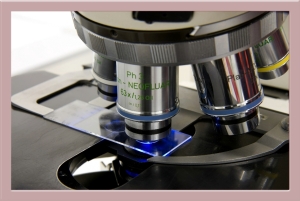The Rheology laboratory at the Keck School of Medicine is the under the direction of Dr. Herbert J. Meiselman, ScD. The lab carries out studies related to physical factors affecting blood flow in the body. This field of research is known as hemorheology, with hemo referring to blood and rheology the study of the flow and deformation of fluid or solids. Dr. Meiselman’s lab is well equipped for hemorheology studies and has a skilled technical staff with many years of experience in this field.
Various types of measurements are carried out on both whole blood and the cellular components of blood (e.g., red blood cells, RBC).
Whole blood studies focus on blood viscosity and hence the flow behavior or thickness of blood; increases of viscosity tend to impair blood perfusion to various organs in the body.
RBC studies are of two types:
1) cell deformability, the ability of RBC to easily deform as these pass through narrow blood vessels;
2) cell aggregation, the “stickiness” of cells to each other resulting in multi-cell clusters that must be dispersed for RBC to enter and traverse small vessels. Decreased cell deformability or increased cell aggregation adversely affect blood flow.
Dr. Meiselman has been active in the area  of blood rheology for over 40 years and is a well-recognized expert in this field. He has a doctorate in engineering from the Massachusetts Institute of Technology and did post-doctoral work at the California Institute of Technology, Pasadena. He has published over 275 scientific papers and four books and has received two international awards: Fahraeus Medal, European Society for Clinical Hemorheology; Poiseuille Gold Medal, International Society for Biorheology. In addition to his participation in NAPS, he is currently collaborating in the area of sickle cell disease research with investigators at UCLA and the Children’s Hospital of Los Angeles.
of blood rheology for over 40 years and is a well-recognized expert in this field. He has a doctorate in engineering from the Massachusetts Institute of Technology and did post-doctoral work at the California Institute of Technology, Pasadena. He has published over 275 scientific papers and four books and has received two international awards: Fahraeus Medal, European Society for Clinical Hemorheology; Poiseuille Gold Medal, International Society for Biorheology. In addition to his participation in NAPS, he is currently collaborating in the area of sickle cell disease research with investigators at UCLA and the Children’s Hospital of Los Angeles.
Dr. Meiselman’s publications can be found on PubMed.
